Tag : Women’s Rights
January 13, 2021 by admin
Creating a Reflection of Myself
Let’s face it. It’s a challenge being a young woman. Society’s perceptions of us mixed with the perceptions we have of ourselves get jumbled up inside to create a warped, often poor, self-image. Especially in this era of media inundation, our self-image is crafted in large part by the representation of people who look like us on screens. It’s a lot to try to reconcile with. Now, imagine if we never saw someone who looked like us at all. How would we derive our self-image? Would we even have one?
(more…)- No Comments
August 10, 2020 by Elana Rebitzer
Countering Isolation with Poetry
Over the last few months, I have found myself attending fewer and fewer of the Zoom live-streamed events that keep popping up on my Facebook page. What at first seemed like an exciting way to connect to new and old faces in the age of social distancing has started to feel like more of a chore, a less-than-pleasant activity to be avoided whenever possible. Time and time again, I exit these Zoom events feeling even more isolated than before.
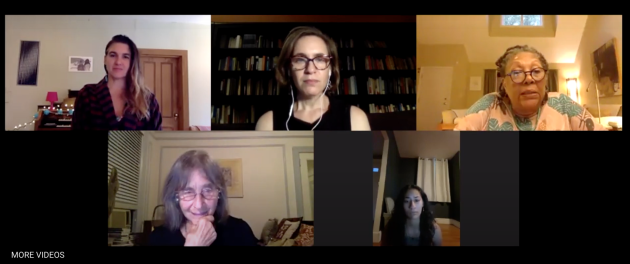
“Poetry in Times of Peril,” presented by Hebrew College-Interfaith Youth Core PsalmSeason project, with co-sponsors Jewish Women’s Archive and Lilith magazine, could have added to that feeling of isolation. Instead, it addressed those feelings of isolation head-on, and as a result, actually left me feeling more connected to the rest of the world.
- No Comments
February 4, 2020 by admin
The Foreign Policy Message We Should (But Won’t) Hear from the President
As we prepare to watch President Trump’s election-year State of the Union Address, we can predict one certainty from this unusually vocal president: Once again, he will not utter a single word supporting human rights around the world. For three years, this administration has dismantled America’s moral leadership on human rights—after decades of global bipartisan courage.
Together, President Trump and Secretary of State Pompeo have gone to extreme lengths to destroy nearly all protections for the most vulnerable communities. They have deliberately created policies harmful to the sexual health and rights of women, girls and LGBTQI+ communities, who often live at the margins of their societies.
- No Comments
November 4, 2019 by admin
Before Women’s Choices and Votes Counted
Ninety-nine years ago—August 18, 1920—women won the right to vote in the United States. Many of these suffragist foremothers were Jewish women, and though some here may have escaped your notice (visit jwa.org for more images and bios), they have a crucial message for you today—no matter the country where you vote: Do not squander this right!
Milestones are simply reminders of the work yet to be done; without a clear-eyed view to the future they’re mere sentiment. Find out the issues affecting women locally and globally—reproductive justice, education, commerce, legislative power— and make your opinions become reality at the polls. Celebrate this centenary anniversary by making sure that voting rights are not trammeled, that all genders have access to the polls, and, especially, that you keep women’s issues (that is, human issues) in the forefront of your consciousness as you mark your ballot.
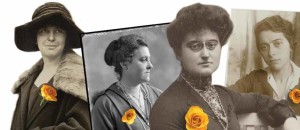
Photo Collage by Lindsay Barnett
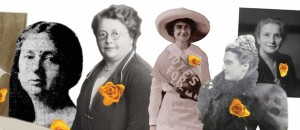
Photo collage by Lindsay Barnett
From left: Suffragist Anita Pollitzer, Henrietta “Netta” Franklin, Rosika Schwimmer, Rebecca Hourwich Reyher, Rosalie Whitney, Rosa Manus, Gertrude Weil, Maud Nathan, and Mary Belle Grossman. Suffragists wore yellow roses at the Tennessee General Assembly when that state became the 36th state to ratify the 19th amendment; red roses were worn by opponents to women’s right to vote.
REBECCA HOURWICH REYHER (1897–1987)
Reyher served the suffrage movement as a member of the National Women’s Party in Boston and New York. Working as a journalist, she supported her entire family. She was also an advocate for Jewish refugees in the U.S., as well as an international activist and scholar for the peace movements and education access for women.
HENRIETTA “NETTA” FRANKLIN (1866–1964)
A member of the small but mighty Jewish subgroup of the suffrage movement in Britain, Franklin served as president of the British National Union of Women’s Suffrage Societies in 1916 and 1917. She believed deeply in the power of education and the professional advancement of women. For Franklin and her peers, this work for women’s suffrage fostered a sense of belonging in British society, especially in the context of a predominantly Christian-led social movement.
MARY BELLE GROSSMAN (1879–1977)
One of the first women accepted into the American Bar Association, in 1918, Grossman lived and worked as a political activist and judge in Cleveland. “I studied law in self-defense because all the young men were getting promotions faster than I.” A fierce advocate for women and families, Grossman was described in the Cleveland Press: “Militant feminist has been bad news to wife beaters, gamblers, and persons charged with morals offenses.”
ROSA MANUS (1881–1943)
Manus worked for women’s rights and pacifism in pre-WWII Western Europe. She worked for the Dutch branch of the International Women’s Suffrage Alliance and for the Women’s Disarmament Committee of International Organizations. Despite these credentials, as a leftist and a Jew she faced contempt from the suffrage movements. After multiple arrests and deportations because she was Jewish and an antifascist activist, she was taken to Auschwitz.
MAUD NATHAN (1862–1946)
Born to a distinguished New York Sephardic family, Nathan defied tradition as she gained momentum as an activist for women’s suffrage. She joined the suffrage movement after the death of her daughter and was especially active in matters of labor and the workplace. She served on the New York Consumers League, the Woman’s Municipal League of New York, and various other organizations concerned with social reform and political activism. In 1897 she was the first woman invited to speak at the Sephardic synagogue Shearith Israel, where she shared her views on the need or religious and racial tolerance. She received support from her husband and peers, but her activism created conflict within her family, especially with her sister, Annie Nathan Meyer, who founded Barnard College but did not support women’s right to vote.
ANITA POLLITZER (1894–1975)
Political activist and advocate for the arts, Pollitzer held a unique role in the suffrage movement. She garnered attention in 1917 after her arrest for picketing the Woodrow Wilson White House as a Silent Sentinel. After earning a degree in arts and education, she organized for the National Woman’s Party: in 1920 she (and his mother) convinced legislator Harry T. Burn of Tennessee to cast the deciding vote for the 19th amendment.
ROSIKA SCHWIMMER (1877–1948)
Schwimmer began her work as an advocate for women’s rights in the workplace. As a young woman, she approached these issues at home in Hungary. She later spoke at the International Women’s Congress in Berlin, and joined the International Woman Suffrage Alliance. Once World War I began, she shifted her focus to help lead the international pacifist movement, but continued to incorporate feminist and other radical political messages into her work for world peace. She remained committed to these causes even as antisemitic and misogynistic political forces threatened her career.
GERTRUDE WEIL (1879–1971)
Weil worked for women’s suffrage in her home state of North Carolina by cofounding the Goldsboro Equal Suffrage Association in 1914. She later served as an officer in the North Carolina Equal Suffrage League in 1917 and in 1919 she became president of the organization. “Women breathed the same air, got the same education; it was ridiculous, spending so much energy and elocution on something rightfully theirs.”
ROSALIE WHITNEY (1873–1939)
In 1901, Whitney became the first woman to serve as the chief attorney at the New York Legal Aid Society. In 1917, she joined the Brooklyn Woman’s Suffrage Party and continued on to serve as New York congressional chair in the Woman’s Federal Equality Association. She also spoke for the National American Woman Suffrage Association at the House of Representatives suffrage amendment hearing in 1918. Born Jewish, after her marriage to Travis Harvard Whitney in 1875, she and he converted to Protestantism (though the reason is not recorded).
- No Comments
August 10, 2018 by Talia Lang
Five Quotes That Will Increase Your Chutzpah
From the JAP to zaftig to the belle juive, there are no end of Jewish stereotypes. Chutzpadik is probably one of the least painful, and incidentally one of the most gender-neutral. Here are 5 quotes from Jewish women, words that embody chutzpah in its most inspiring and hopeful forms.
“I’ve been described as a tough and noisy woman, a prize fighter, a man-hater, you name it. They call me Battling Bella, Mother Courage, and a Jewish mother with more complaints than Portnoy. There are those who say I’m impatient, impetuous, uppity, rude, profane, brash, and overbearing. Whether I’m any of those things, or all of them, you can decide for yourself. But whatever I am —and this ought to be made very clear—I am a very serious woman.” – Bella Abzug
- No Comments
August 8, 2018 by Kira Yates
Five Things You Can Do Right Now for Abortion Rights
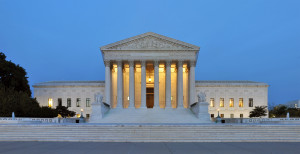 In the 45 years since Roe v. Wade was decided in 1973, feminists have worried that abortion rights are gradually being eroded as some states passed laws limiting aspects of this medical procedure. After the announcement of Donald Trump’s Supreme Court nominee, Brett Kavanaugh, the first thought in the minds of many is the future of hard-won reproductive rights. Now, the right to determine one’s own reproductive future, once guaranteed by Roe, may hang by a thread.
In the 45 years since Roe v. Wade was decided in 1973, feminists have worried that abortion rights are gradually being eroded as some states passed laws limiting aspects of this medical procedure. After the announcement of Donald Trump’s Supreme Court nominee, Brett Kavanaugh, the first thought in the minds of many is the future of hard-won reproductive rights. Now, the right to determine one’s own reproductive future, once guaranteed by Roe, may hang by a thread.
- No Comments
June 20, 2018 by Amie Newman
At the Border, We’re Seeing Exactly What America Is
It’s impossible not to see the pleas plastered on Twitter, Facebook, and Instagram: “We are better than this.” “This is not who America is.” “This is not the America I know!”
But it is who we are: what the United States is doing to families and children, specifically families and children of color, by ripping them apart at the U.S. border is part and parcel of an ongoing history. It is horrific and unbearable and inhumane. But it is exactly what America is and continues to be.
We do not like when these injustices become so evident. We prefer our cruelty to remain in the shadows. You know, like lack of access to safe and legal abortion. Or barring women, especially low-wage workers, from paid family leave, or perpetuating a medical system that continues to allow Black women to die during pregnancy and childbirth at three times the rate of White women. So, yes, this new policy is an emergency, but the oppression is definitely not new. (more…)
- No Comments
May 29, 2018 by Yona Zeldis McDonough
What It’s Like to Publish Your Debut Novel… at Age 90
All this week, in the grand tradition of Victorian periodicals, Lilith will be serializing an excerpt of Sadie in Love, the debut novel from 90-year-old former magazine editor Rochelle Distelheim. Look out for new installments every day this week.
Sadie in Love: Part 1| Part 2 | Part 3 | Part 4
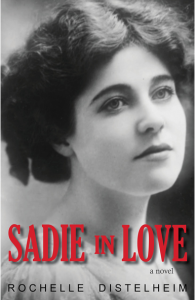
Sadie Schuster—fortyish, plumpish, a suffragist, and recently widowed—spends more time now talking to her late husband, Fivel, than she did when he was alive. Sadie keeps Fivel informed of her daily activities—especially her pursuit of a husband—because “An empty bed is a cold place for a hot-blooded woman.” A lover of ballroom dancing, the moving pictures, and night-school English words, Sadie’s true talent lies in the magic love-knots she artfully crafts for lonely, unwitting, immigrants willing to purchase hope wrapped in a schmattah for fifty cents.
Selling love-knots while seeking love, Sadie consults with her magic spirits to woo Herschel—the muscled ice peddler who reads poetry and pines for his newly departed wife. Her daughter, Yivvy, sells secondhand, possibly “pinched” tchotchkes in her antique shop and plans to marry the Irish cop on the beat. Enter Ike Tabatnik, the “Dance King of Riga, Latvia,” just off the boat and ready to take on America—and Sadie’s heartstrings. Comedy and chaos follow.
A stunning confession, following the wedding of one of her love-knot clients—which begins with one groom and ends with another—pushes Sadie to make a surprising choice. She then throws herself at the mercy of her magic spirits, asking them to do quickly for her what they have been doing for her customers—before it’s too late. Fiction Editor Yona Zeldis McDonough talks to Rochelle Distelheim about what it feels like to have her debut novel published when she’s in her nineties.
- 1 Comment
July 14, 2017 by Eden Gordon
This Website Helps Progressive Female Candidates Run for Office
Eliza Cussen was on her way to see “Wonder Woman”, and listening to an episode of her favorite podcast, “Call Your Girlfriend.” This one focused on women in politics (or the lack thereof). Like many would in this situation, she was wondering: what can I do?
Right then, she decided to create what is now Project Sheila, an organization dedicated to helping female politicians launch campaign websites. Cussen has been interested in web design for most of her life, and was working as a digital communications specialist when she had the idea. She saw that although she did not have significant funds to donate to campaigns, she could use her expertise to help in another way. She put out a call to friends in her network, asking if anyone needed help with web design, and received several requests right away. Around three weeks later, Project Sheila went live.
- No Comments
 Please wait...
Please wait...